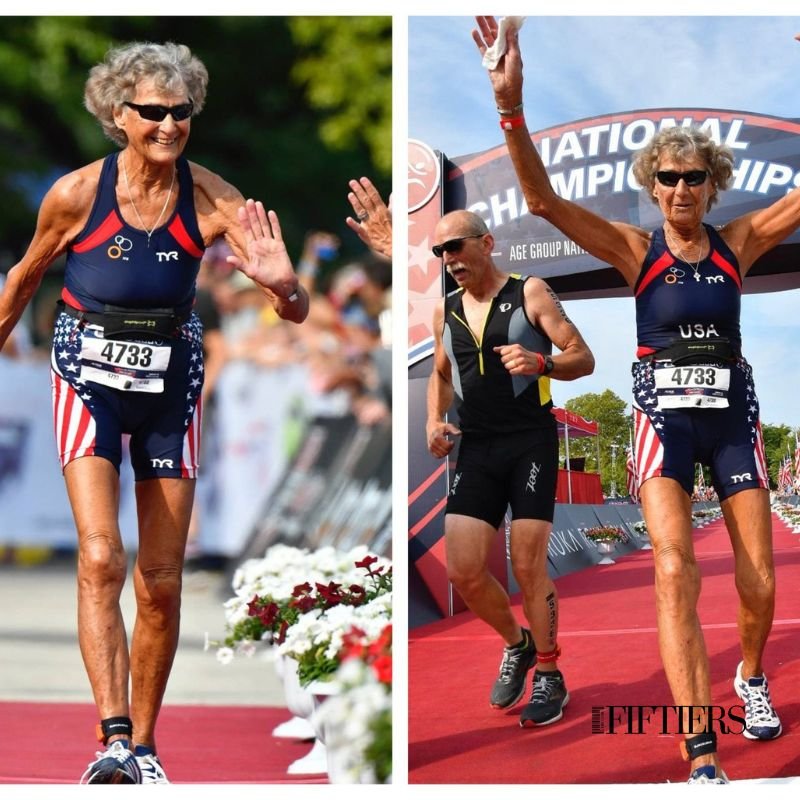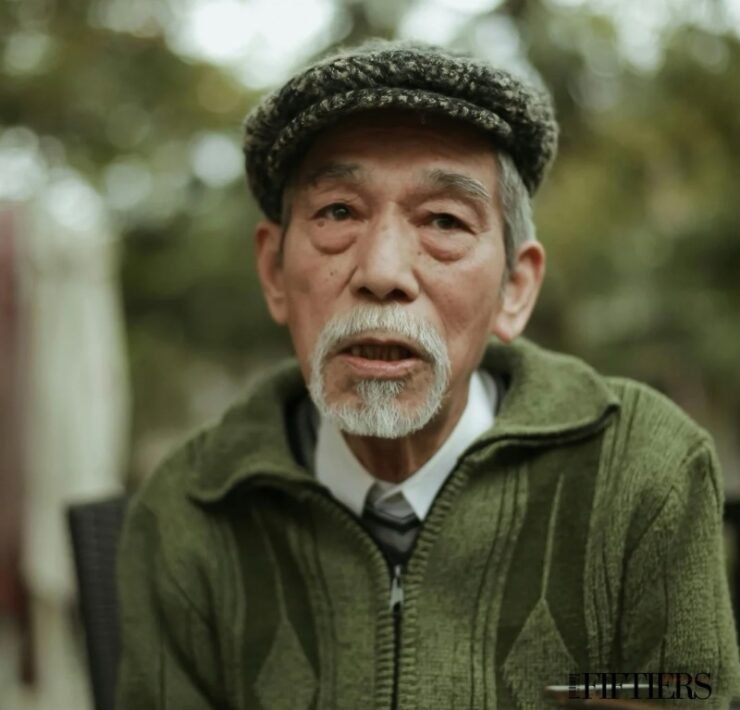Ironman at 70: The New Generation of Senior Athletes Breaking Records

FIFTIERS | Life Begins at 50. La vida comienza a…
Picture this: the clock is approaching 17 hours of competition in an Ironman race. A tired yet glowing face crosses the finish line. What’s astonishing is that beneath that helmet and wetsuit lies an 80-year-old body. These athletes over 70 are proving that age is just a number, redefining the limits of what we thought was physically possible. Far from settling into a quiet retirement, they train, compete, and complete one of the most grueling endurance events in the world. Their stories inspire us and challenge the way we think about aging.
Breaking Stereotypes About Aging in Sports
Traditionally, turning 70 has been associated with retirement, rest, and a slower lifestyle. Society has long suggested that at a certain age, one must “slow down” and avoid intense physical activity. But septuagenarian and octogenarian athletes are shattering these assumptions. Ironman triathlons—known for being among the most demanding endurance races—are no longer exclusive to the young or middle-aged. Age categories now include 70-74, 75-79, and even 80+, something unimaginable just decades ago.
Seeing a 75- or 80-year-old athlete wearing a race bib, ready to swim 2.4 miles, bike 112 miles, and run a full marathon is not only admirable—it’s transformative. These competitors prove that aging doesn’t mean fragility or inactivity. In fact, for many, sports become a new source of vitality and purpose.
Inspiring Examples: Ironman After 70
Behind these statistics and age groups are real people with extraordinary stories. One of the most iconic is Sister Madonna Buder, known as the “Iron Nun.” She began running at 48, completed her first triathlon at 52, and her first Ironman at 55. She has since completed over 340 triathlons, including 45 Ironmans, setting longevity records along the way.
Another remarkable story is that of Japanese athlete Hiromu Inada. At 69, after retiring from his professional life, he sought a new challenge—and found triathlon. He did his first Ironman at 77 and, after several attempts, successfully completed the Kona Ironman in Hawaii at age 84. He returned at 85 to do it again.
Other pioneers include Lew Hollander, Bob Scott, and Cherie Gruenfeld—each of whom continued to compete into their 70s and 80s, pushing boundaries and inspiring thousands.
Discipline, Mindset, and Lifestyle
To complete an Ironman at 70 or 80 takes more than good genes. These athletes follow smart training plans, maintain disciplined routines, and adopt a lifestyle focused on wellness. Many wake before dawn to train daily. Sister Madonna often ran to her church or prison ministry visits. Nutrition, rest, and recovery play a crucial role in their success.
Discipline also means listening to the body—knowing when to rest, how to heal from injuries, and when to adjust intensity. Just as important is their mindset: patience, perseverance, and optimism define how they approach training and life. Each workout is a small victory; each race, a statement of purpose.
Beyond the Physical: Mental and Emotional Growth
The challenges these senior Ironman athletes face go beyond the physical. They experience profound mental and emotional transformation. Training for hours, enduring pain and exhaustion, and pushing through moments of doubt forge a powerful sense of inner strength.
Completing an Ironman later in life provides deep personal satisfaction. It renews self-esteem and nourishes a youthful spirit—not in appearance, but in soul. Aging becomes a time of “more”: more freedom, more gratitude, more courage to grow. Their success becomes collective inspiration. Strangers cheer them on, and younger athletes see living proof that the human spirit knows no age limit.
Social connection is another benefit. Competing keeps them part of a vibrant athletic community that values their contributions. This counters the isolation many seniors face and strengthens their emotional well-being.
Redefining What It Means to Age
These senior Ironman athletes don’t just represent sports stories—they offer life lessons. They show us that it’s never too late to challenge ourselves. Their discipline may inspire us to walk daily, learn a new sport, or simply move with more purpose.
Aging, they remind us, is not a limit. It’s a new frontier. Reaching 80 with the energy to train, compete, and cross a finish line challenges everything we thought we knew. These are not just personal milestones—they are acts of resistance against societal expectations. They are reminders that the desire to grow doesn’t expire with age.
So the next time you see someone with silver hair jogging in the park or riding a bike, remember: you might be witnessing a quiet hero showing us all the way. Age adds wrinkles, yes—but it also adds glory.
Discover more from FIFTIERS
Subscribe to get the latest posts sent to your email.

















